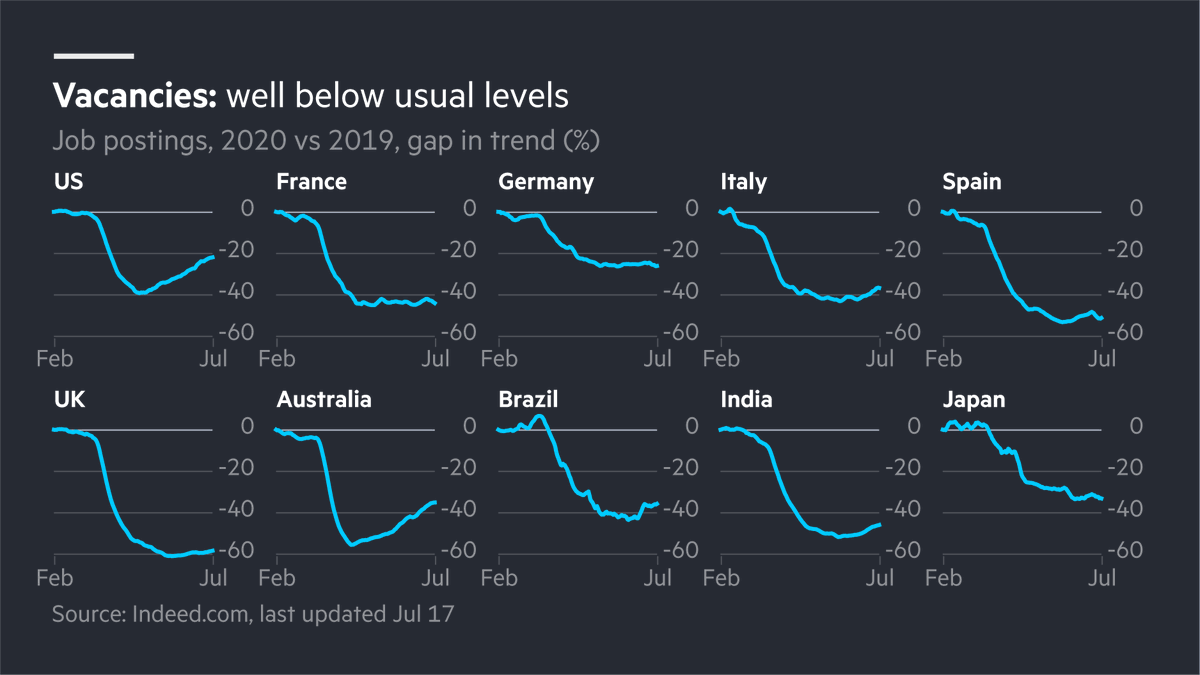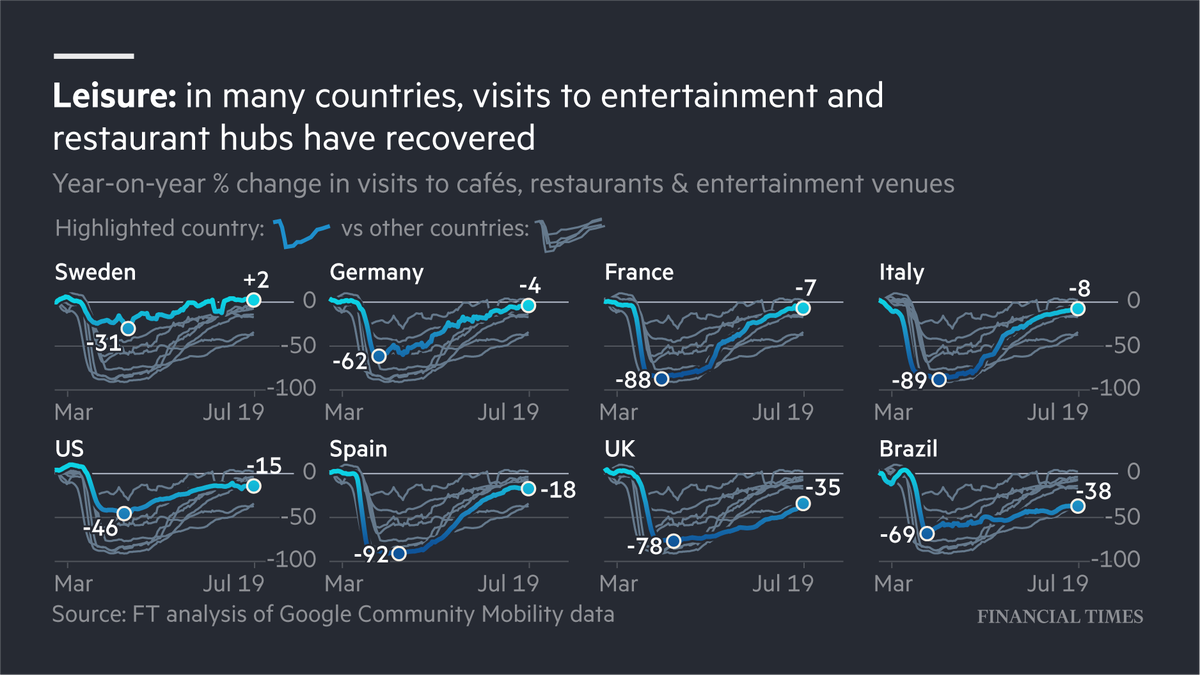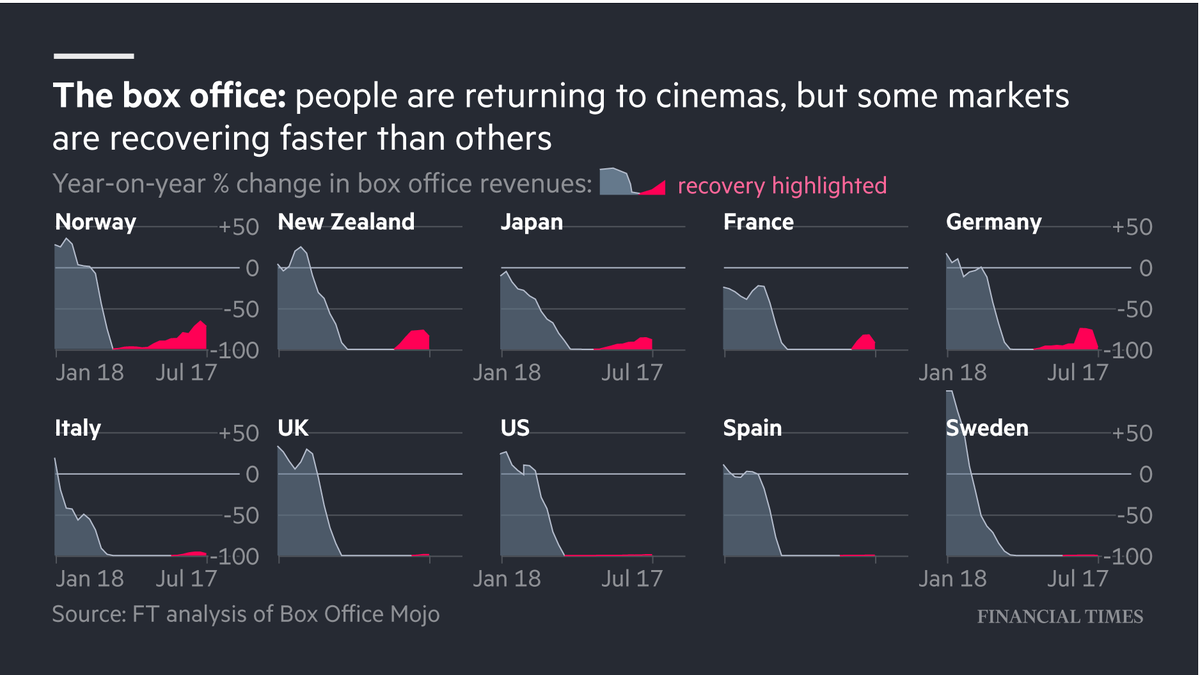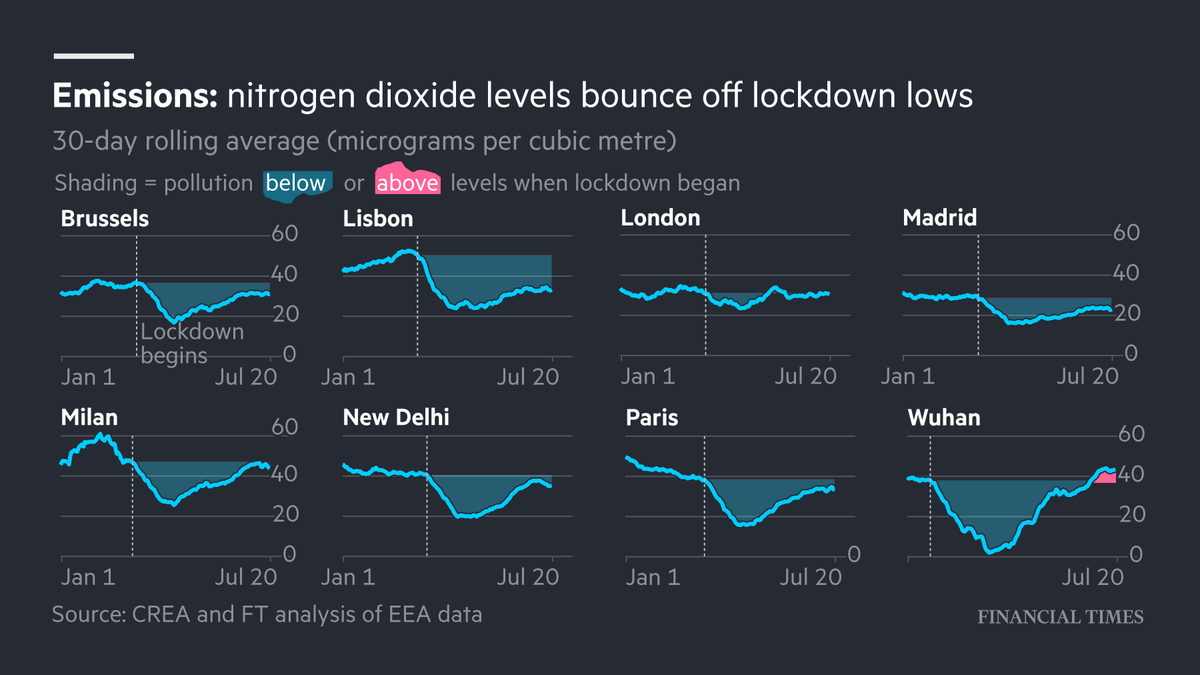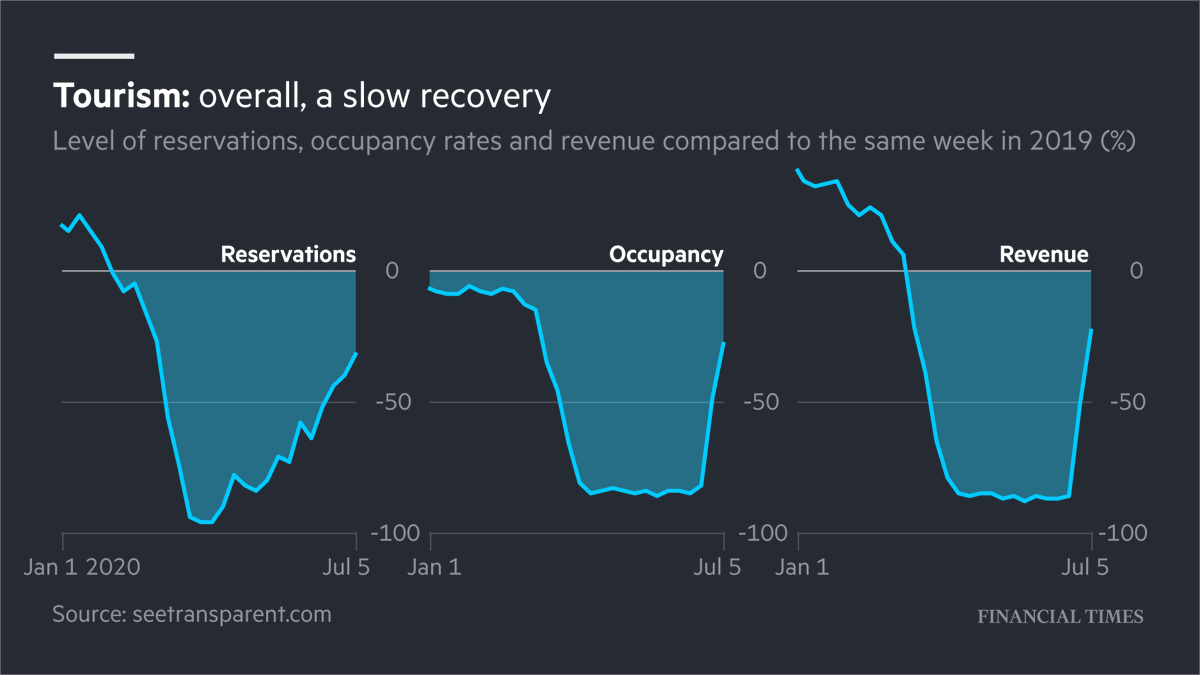The world is emerging from lockdowns that resulted in the most severe contraction since the Great Depression.
The FT’s new global economic recovery tracker uses alternative data to get a first glimpse of the rebound. Here’s what we’ve found so far : https://on.ft.com/2P0ywdq
: https://on.ft.com/2P0ywdq
The FT’s new global economic recovery tracker uses alternative data to get a first glimpse of the rebound. Here’s what we’ve found so far
 : https://on.ft.com/2P0ywdq
: https://on.ft.com/2P0ywdq
 Employment
EmploymentMillions have lost their jobs, but postings on http://Indeed.com suggest that a labour recovery has barely started.
In countries such as the US unemployment has been deeper, but the uptick in new postings has been stronger https://www.ft.com/content/272354f2-f970-4ae4-a8ae-848c4baf8f4a
 Consumer spending
Consumer spendingHousehold spending makes up the largest part of most countries’ economies. Google Mobility data, which tracks footfall, shows that people have returned to spending venues, meaning consumers are regaining confidence — in some countries https://www.ft.com/content/272354f2-f970-4ae4-a8ae-848c4baf8f4a
 Cinemas
CinemasConsumers around the world are slowly returning to cinemas which, like a large part of the entertainment sector and other indoor venues, have been hard hit https://www.ft.com/content/272354f2-f970-4ae4-a8ae-848c4baf8f4a
 Pollution
PollutionThe pandemic has disrupted factories, supply chains and demand for goods. Pollution, a measure largely associated with industrial emissions, has dropped during the lockdowns, but it is beginning to rise again as economies reopen https://www.ft.com/content/272354f2-f970-4ae4-a8ae-848c4baf8f4a
 Travel
TravelTourism was one of the sectors worst hit by travel bans: global arrivals are set to shrink by between 58% and 78% this year. Flights and hotel occupancy are still down, but some countries are starting to recover, especially in the Mediterranean
https://www.ft.com/content/272354f2-f970-4ae4-a8ae-848c4baf8f4a

 Read on Twitter
Read on Twitter